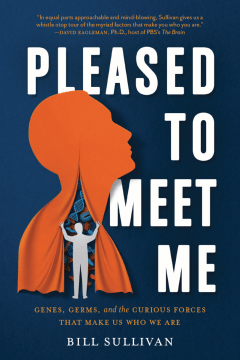Bill Sullivan in The Scientist:
 As author George R.R. Martin would attest, good writing takes time. For eons, DNA has been writing genetic scripts for “survival machines,” evolutionary biologist Richard Dawkins’s term for living organisms—their primary purpose being to live long enough to propagate their DNA. As author Samuel Butler recognized in 1877, “A hen is only an egg’s way of making another egg.”
As author George R.R. Martin would attest, good writing takes time. For eons, DNA has been writing genetic scripts for “survival machines,” evolutionary biologist Richard Dawkins’s term for living organisms—their primary purpose being to live long enough to propagate their DNA. As author Samuel Butler recognized in 1877, “A hen is only an egg’s way of making another egg.”
But our planet has limited resources, so survival machines that had a leg up on the competition won the DNA replication relay. Selfish genes were locked in an arms race to craft survival machines that were better, stronger, faster. About 600 million years ago, an ancestral neuron emerged that heralded a new weapon: intelligence. It took nearly 4 billion years, but DNA has finally built a survival machine intelligent enough to expose DNA’s game. We are the first species to meet our maker.
The realization that we’re an apparatus for the dissemination of genes is quite different from traditional creationist narratives. It is even more humbling to reflect on the power of a related revelation: instead of passively watching genetic stories unfold, we can now become the authors. Are we ready for this awesome responsibility? In just a half century, we resolved the structure of DNA, made genome sequencing easy, and discovered ways to edit genes. Although we don’t fully understand its language, some are now eager to take a red pen to the genome. With the help of the first human genome, published in 2003, researchers have revealed genes involved in certain diseases, and this knowledge is guiding the discovery of novel therapeutics.
More here.
